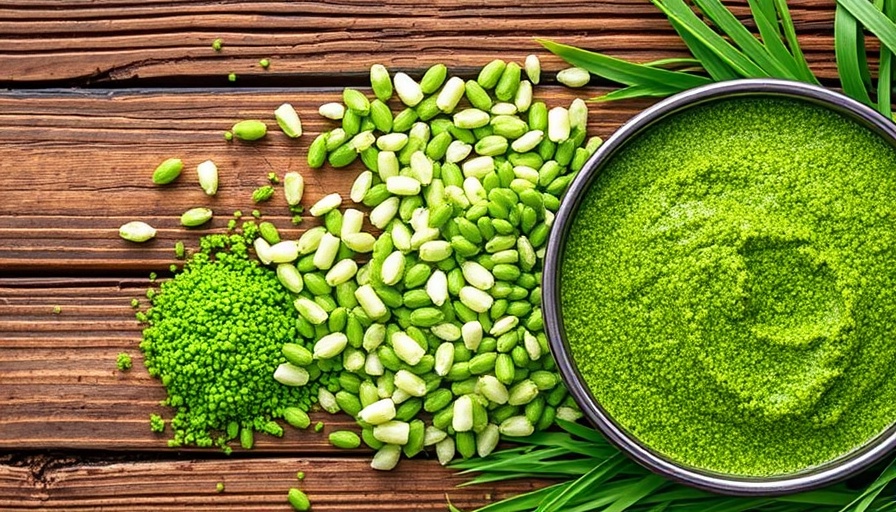
The Underrated Power of Barley Grass Juice
While waving through the myriad of superfoods available today, barley grass juice powder often gets sidelined, overshadowed by more popular options like spirulina and wheatgrass. However, this nutrient-rich powerhouse derived from the young leaves of barley plants (Hordeum vulgare) offers remarkable benefits, particularly for women's health. Recent studies are shedding light on its anti-inflammatory properties and its potential role in easing specific health conditions.
Barley Grass Juice and Gut Health
One compelling area of research involves barley grass juice's positive effects on inflammatory bowel diseases (IBD) such as ulcerative colitis. A significant study published in the Scandinavian Journal of Gastroenterology revealed that patients consuming wheatgrass juice, closely related to barley grass, experienced markedly reduced symptoms of ulcerative colitis. Those involved in the study noted less rectal bleeding and abdominal pain, suggesting that barley grass juice could serve as a supportive treatment option for those grappling with IBD.
For women particularly, managing gut health is essential, with hormonal fluctuations often impacting digestive well-being. Incorporating barley grass juice into smoothies may not only enhance nutrient intake but also provide a soothing effect for flare-ups, allowing for greater overall comfort.
Supporting Liver Health
The liver plays a critical role in detoxification and metabolic processes, making its health paramount, especially among women who experience varying lifestyle-related stressors. A fascinating 2017 study published in Phytotherapy Research looked at the protective effects of wheatgrass-derived polysaccharides on the liver. The findings were promising: polysaccharides significantly reduced inflammation in lab mice subjected to liver injury via lipopolysaccharide (LPS) infusion, a toxin known to incite liver damage.
By extrapolating these findings, it suggests that barley grass juice may also help in protecting the human liver and could be incorporated as a preventative measure against inflammation-related liver issues. Given the multifunctional demands placed on women’s bodies, prioritizing liver health through nutrients like those found in barley grass could be invaluable.
Joint Health and Inflammation
Rheumatoid arthritis, a chronic inflammatory disorder that primarily affects joints, can be particularly debilitating. Research indicates that barley grass may offer supportive relief for individuals suffering from such inflammatory conditions. Its anti-inflammatory characteristics might mitigate some of the discomfort associated with joint pain, making it a valuable addition to a daily health regimen.
Women are disproportionately affected by rheumatoid arthritis, underscoring the importance of accessible dietary solutions like barley grass juice. This superfood could potentially serve as a complementary therapy to conventional treatments, thus improving quality of life.
Future Trends: Embracing Superfoods in Daily Nutrition
As we look ahead, the emphasis on integrating functional foods into our diets is set to become more pronounced. The acceptance of barley grass juice as a daily dietary staple might not only influence bodily health but also pave the way for broader awareness of holistic nutritional strategies. For women who prioritize health and wellness, recognizing the implications of such superfoods on everyday vitality may lead to impactful lifestyle changes.
Conclusion: A Nutritional Powerhouse
Barley grass juice is heralded for its remarkable health benefits, contributing to gut health, liver protection, and inflammation reduction, all crucial aspects of overall well-being, especially for women. With ongoing research confirming its advantages, now is an excellent time to incorporate this nutrient-dense superfood into your diet. As promised, be sure to take advantage of the special discounts available until August 3rd, using the coupon code HEALTH25. Start today on your journey toward better health!
 Add Row
Add Row  Add
Add 




Write A Comment